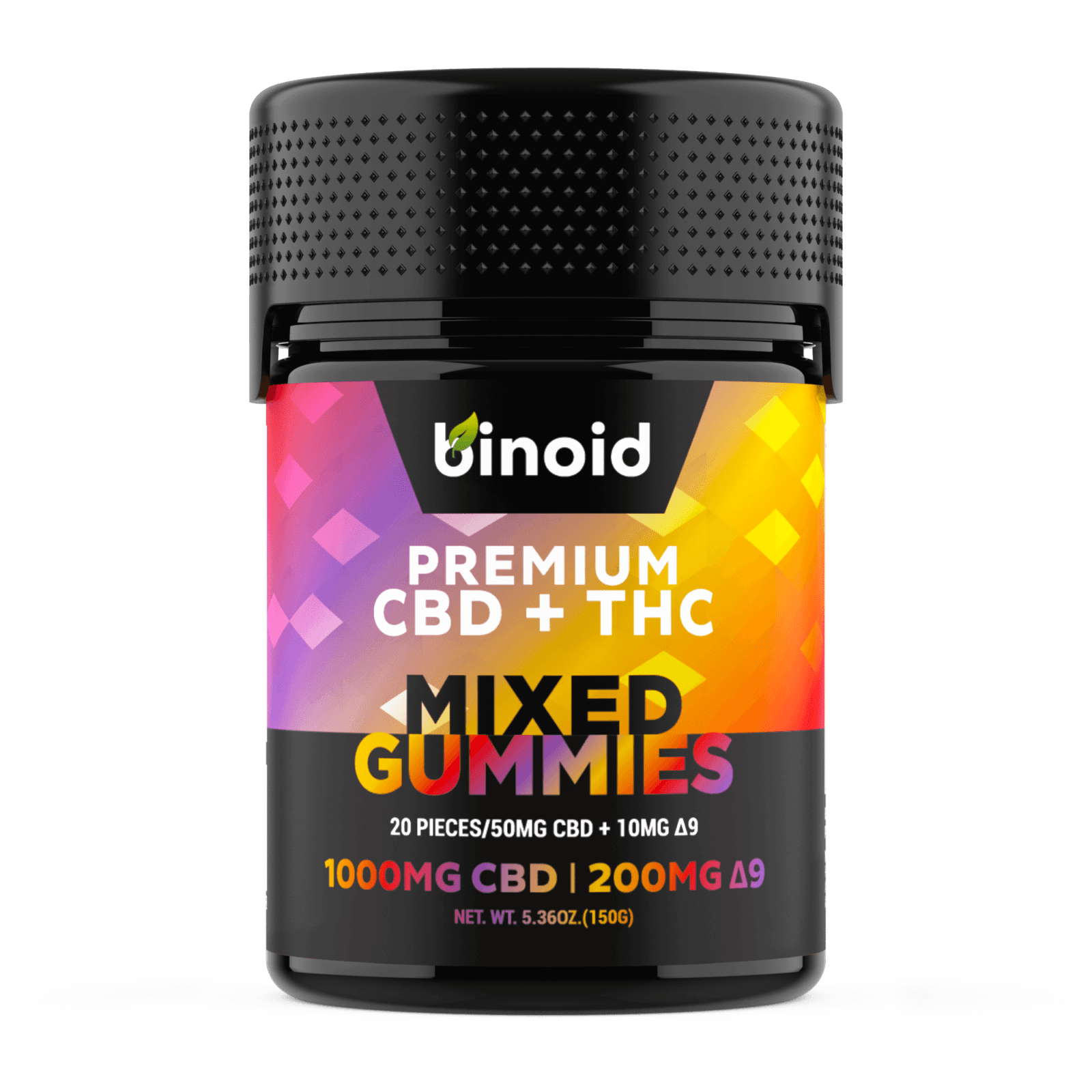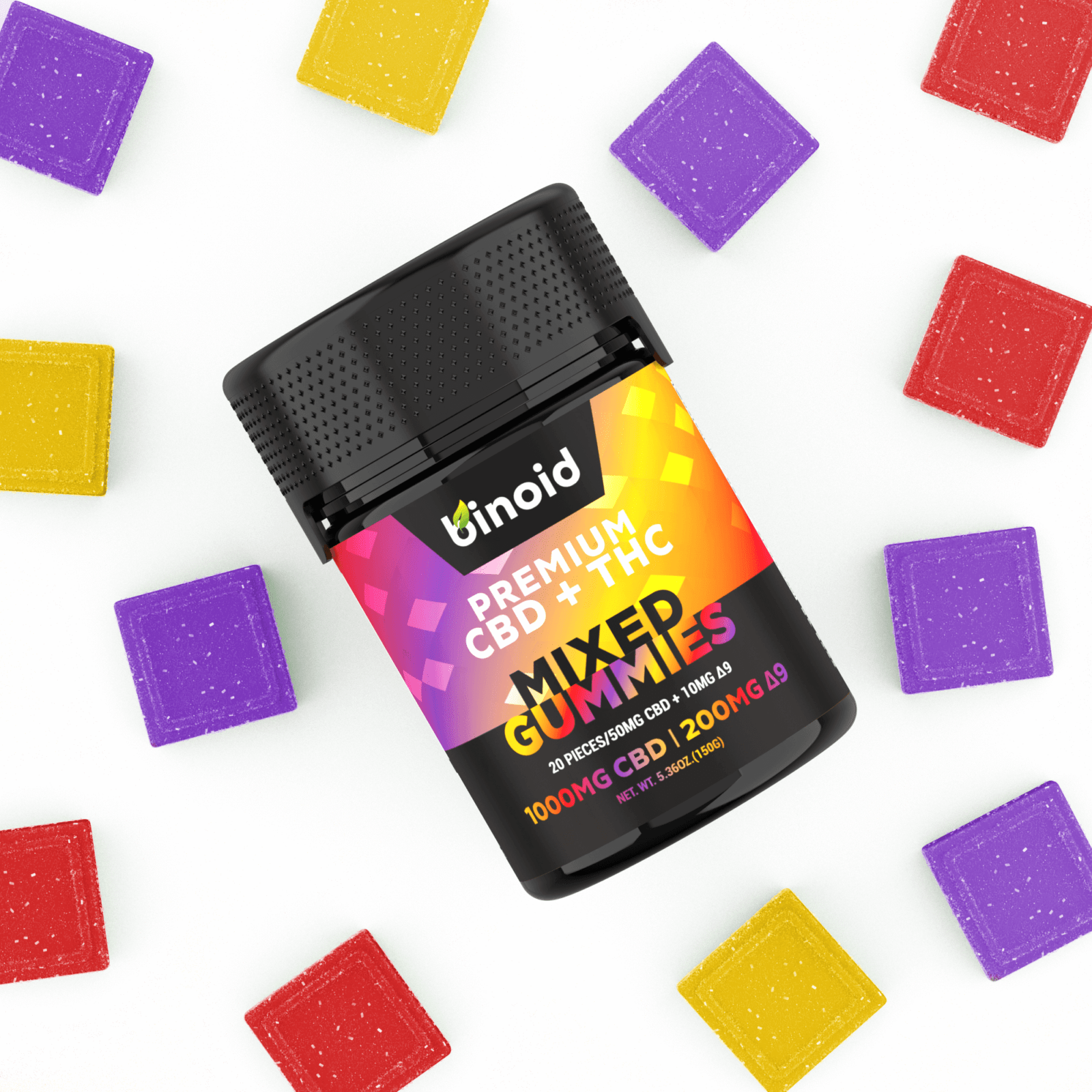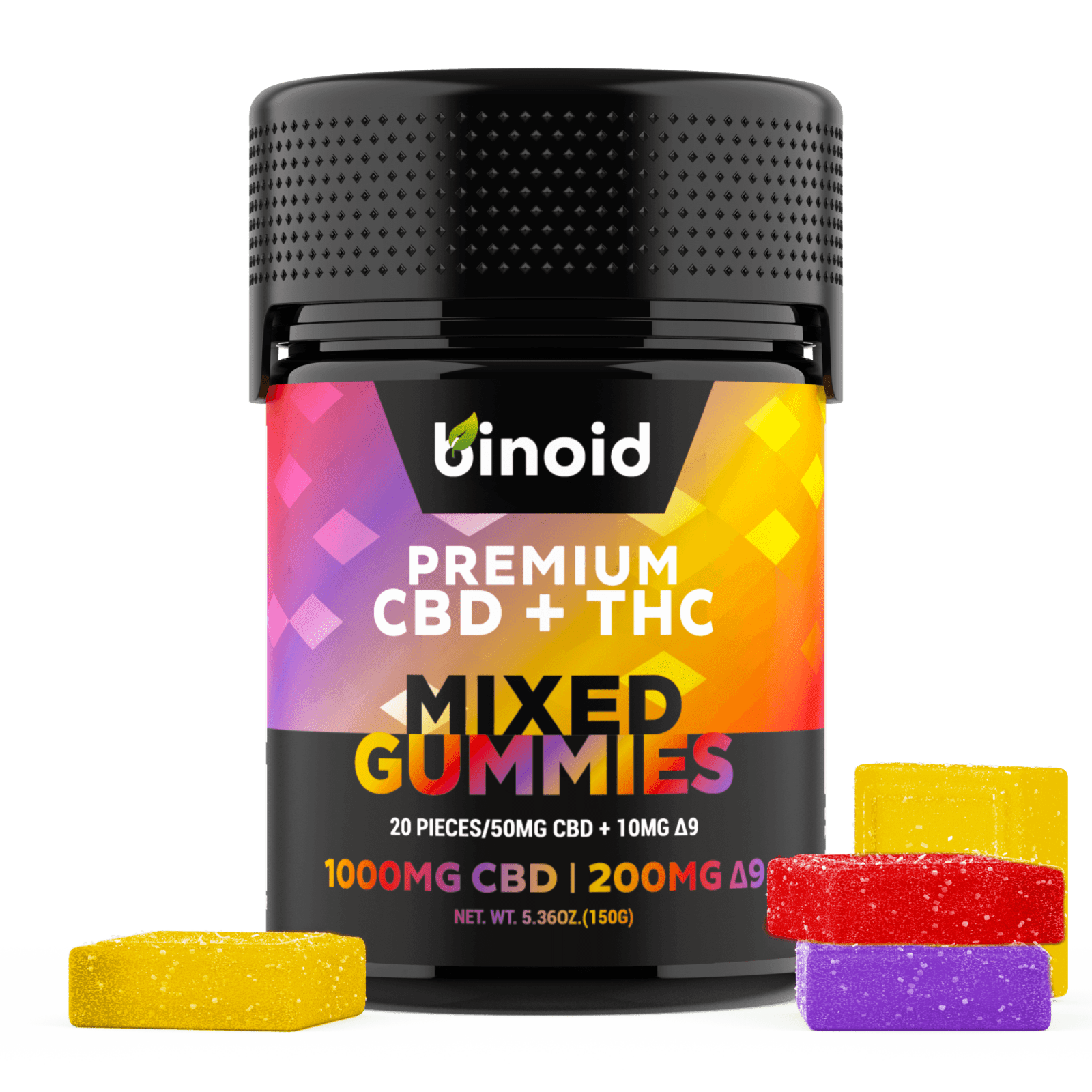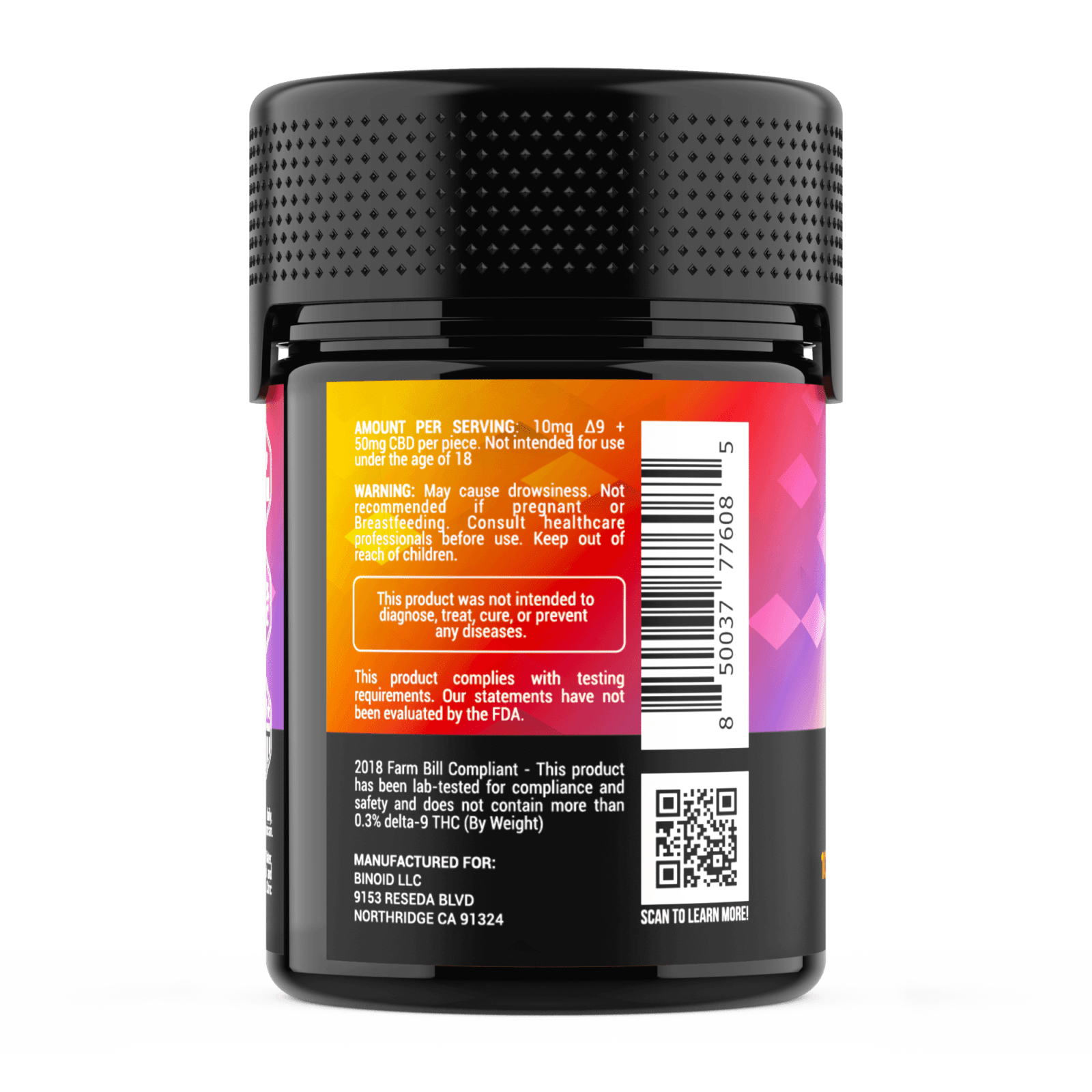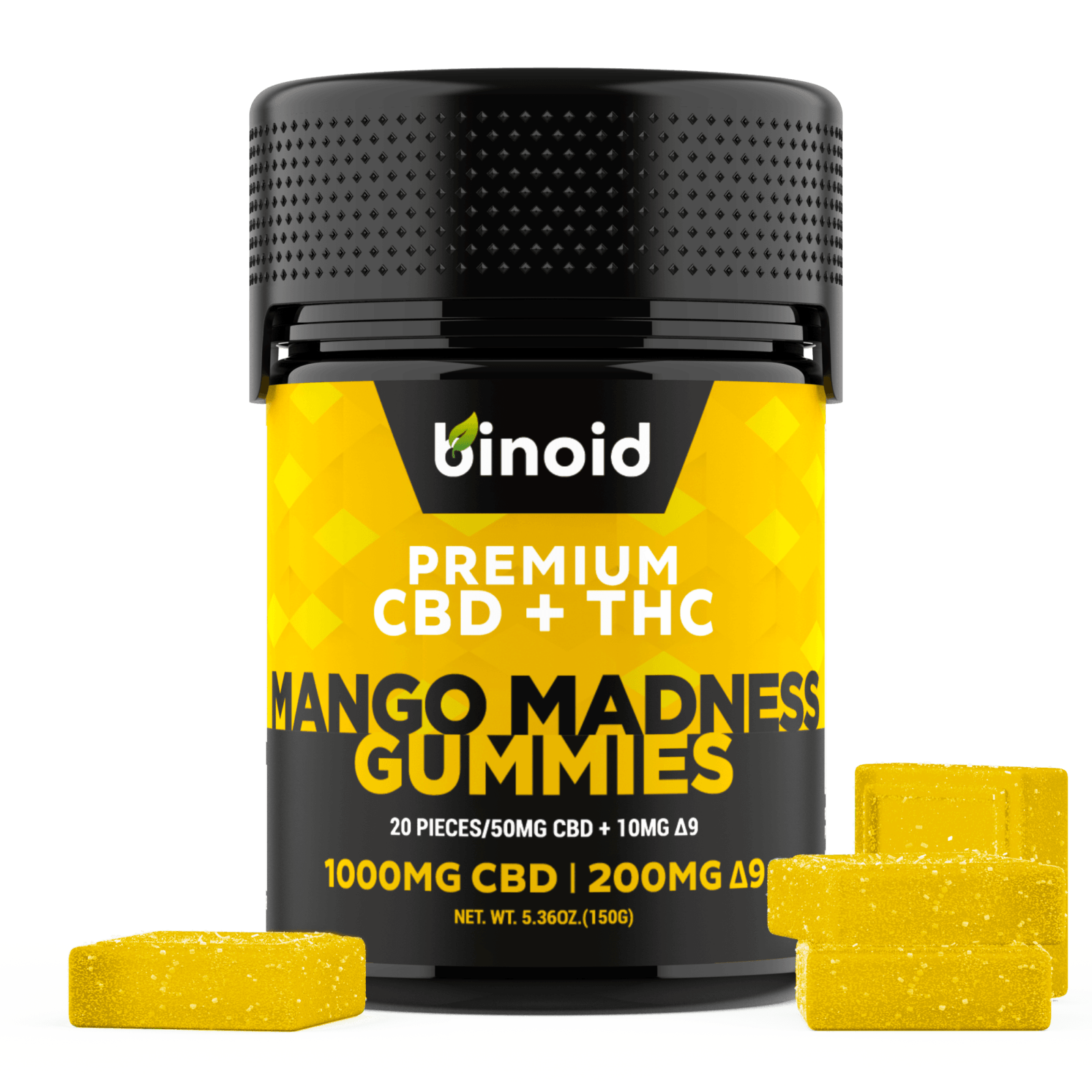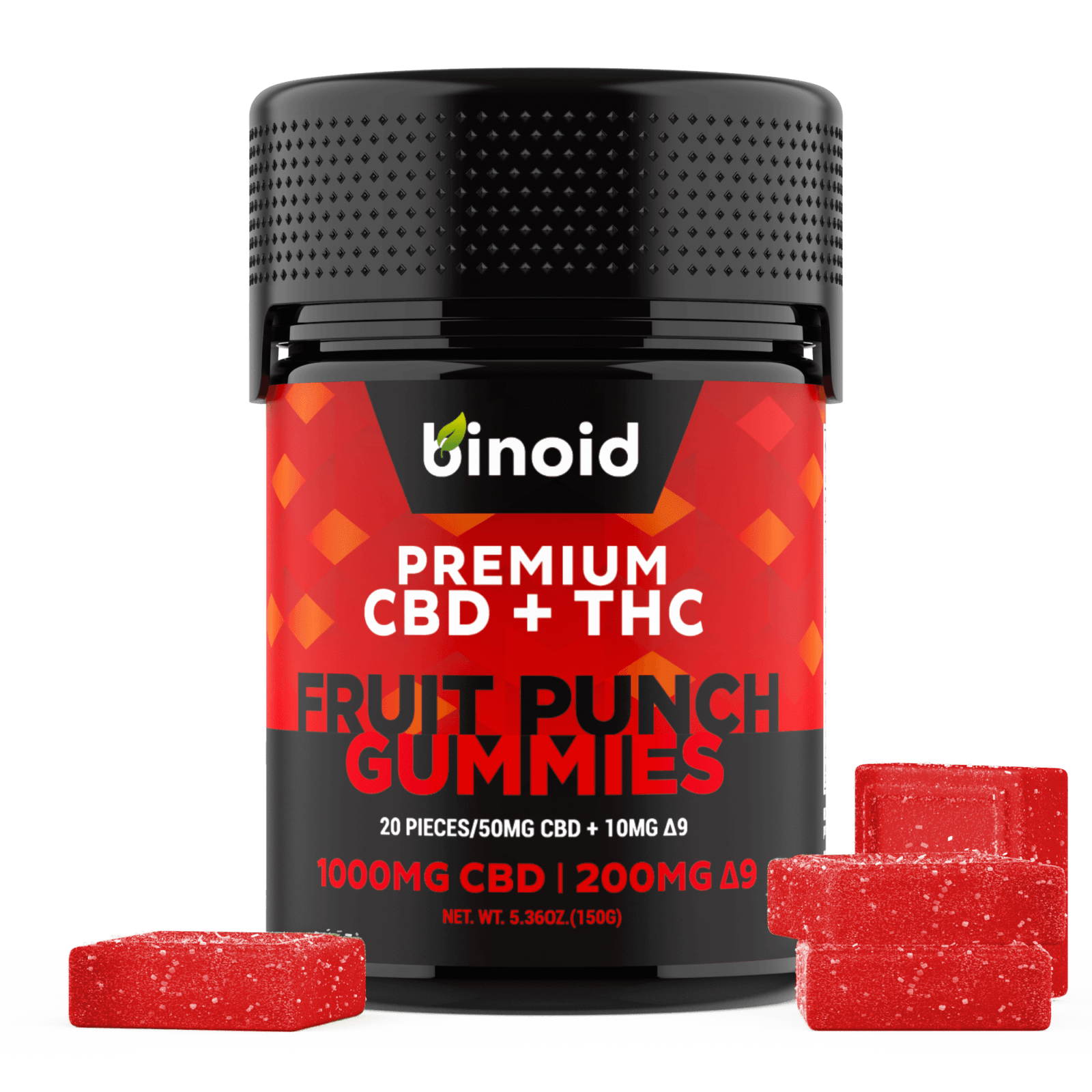Binoid Delta 9 THC Gummies
Buy 2 & Save 15%, or 3+ & Save 20%
Mix and match from the same brand. Discount applies in cart.
- Each Binoid Delta 9 THC Gummy offers a precise dosage of the highly sought-after cannabinoid, Delta 9 THC.
- These gummies provide a delightful and convenient method of consumption.
- Delta 9 THC is known for promoting relaxation, euphoria, and an overall sense of well-being.
- Available in various delicious flavors, these gummies are a treat for your taste buds.
- Despite their potency, the gummies are discreet and portable, allowing for consumption without drawing attention.
- The onset of effects from these edibles may take longer, but they also tend to last longer than other delivery methods.
- Consistent effects are guaranteed due to the accurate dosing of each gummy.
This product does not ship to AK, CA, CO, ID, MN, OR.
Product Details
Binoid Delta 9 THC Gummies are a unique product designed to deliver the potent benefits of Delta 9 THC in a delectable edible form. These gummies are thoughtfully crafted to provide a smooth journey to relaxation and euphoria. The precise dosage of each gummy ensures consistent effects, making consumption easy to manage. Furthermore, the discreet and portable nature of these gummies allows you to enjoy Delta 9 THC anywhere, anytime.
Despite the delayed onset compared to other consumption methods, the effects of these gummies last longer, providing an extended period of relaxation. This makes them perfect for those who seek a prolonged experience.
- Potent Delta 9 THC content
- Precise dosage for consistent effects
- Delicious variety of flavors
- Discreet and portable for on-the-go consumption
- Longer-lasting effects compared to other methods
However, as with any cannabinoid product, individual experiences with Binoid Delta 9 THC Gummies may vary. It is advisable to start with a low dose and gradually increase as needed to find your ideal comfort level. These gummies offer an enjoyable and delightful way to experience the potential benefits of Delta 9 THC.
